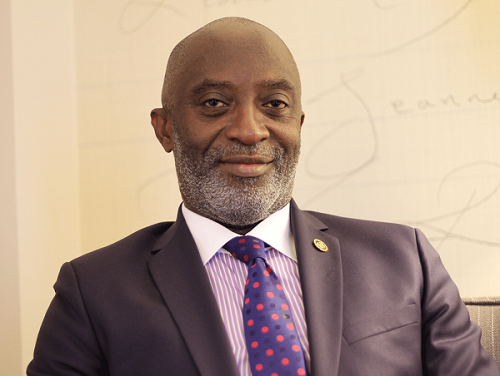… records impressive growth for H1 2020
Despite projections by the United Nations Conference on Trade and Development (UNCTAD) that Global Foreign Direct Investment (FDI) inflows would decrease by up to 40% in 2020 from their 2019 value of US$1.54 trillion, Ghana has seen a more than 400% rise in FDI inflows in the first half of the year, CEO of the Ghana Investment Promotion Centre (GIPC) Yofi Grant has disclosed.
The UN body’s World Investment Report 2020 had projected that – primarily as a consequence of the ongoing pandemic that has been described as a supply, demand and policy shock for FDIs – FDI allocations across the globe would fall below US$1trillion for the first time since 2005.
However, speaking at a presentation of the half-year FDI report by the Centre, Mr. Grant stated that Ghana was able to buck the trend observed in most countries, developed and developing alike. While describing Q1 as ‘sluggish’ as regards touching FDIs, he admitted that the US$180million recorded was impressive as it represents a 400% increase over the comparable period in 2019.
Due to the severe measures undertaken to contain spread of COVID-19, he said, the first two months of Q2 – that is, April and May – saw a significant dip in FDI inflows. By contrast, in June, there was a sharp rise in FDI inflows with approximately US$600million coming in, which was responsible for the outstanding figures recorded.
He ascribed the phenomenon to a number of factors including the nation’s swift and effective response to the pandemic, which has drawn continued applause from the international community; the institution of reforms to promote ease of doing business, as well as the nation’s economic and political stability – which according to him have inspired confidence in the investing community and increased Ghana’s allure as the ideal destination for medium- to long-term investors.
“Expectations had been that the pandemic would have dire consequences, and it has; but I believe that robustness of the economy and some of the good things we have done contributed to what we are seeing today,” he said.
Elaborating on the figures, he stated that overall investments recorded over the period stood at US$869.47million, with US$785.62million representing total FDI value. He clarified that the figures stated were an accumulation of inflows recorded by GIPC and the Petroleum Commission – excluding those possibly recorded by the Free Zones Board and Mineral Commission.
He noted that the figures could be marginally higher in the event that the other bodies recorded any significant values, and promised that measures to synchronise all the available data are underway.
Breakdown
Offering further insight, he revealed that GIPC recorded a total of 69 projects with a total estimated cost of US$688.74million from January to June of 2020. Out of this, the FDI and local components amounted to US$627.52million and US$61.22million respectively.
“The FDI value of US$627.52million was a significant increase of 409.10% over the FDI value of US$123.26million recorded in the first half of 2019. The investments recorded by the Centre in the first half of 2020 have prospects of generating a minimum of 6,489 jobs. 5,972 (87.2%) of these jobs are to be generated for Ghanaians and the remaining 562 (8.7%) will be for non-Ghanaians,” a portion of the report read.
A sectorial breakdown of the 69 projects registered revealed that the Services sector recorded the highest number with 25 projects. The Manufacturing and Export trade sectors followed with 21 and 11 projects respectively.
In terms of the estimated cost of investments, the General Trading sector recorded the largest value of US$246.05million. This was followed by the Mining, Exploration and Manufacturing sectors with estimated costs of US$231.02million and US$170.67 million respectively.
“Six regions directly benefitted from the 69 projects. 59 projects, representing 85.51% of the projects registered, are in the Greater Accra Region. The other regions are the Central and Eastern Regions with a project each; Ashanti and Volta Regions with two projects each; and the Western Region with four projects,” the report added.
With uncertainty lingering, the UNCTAD report suggests that FDIs are projected to decrease by a further five to 10% in 2021 globally, with 2022 proposed as the earliest time for recovery. Reacting to this, Grant expressed cautious optimism that Ghana will stay ahead of the global curve.
“The Centre will continue to aggressively and assiduously pursue worthwhile investments for economic developments, as well as support government’s initiatives to help bolster the economy,” he added.










